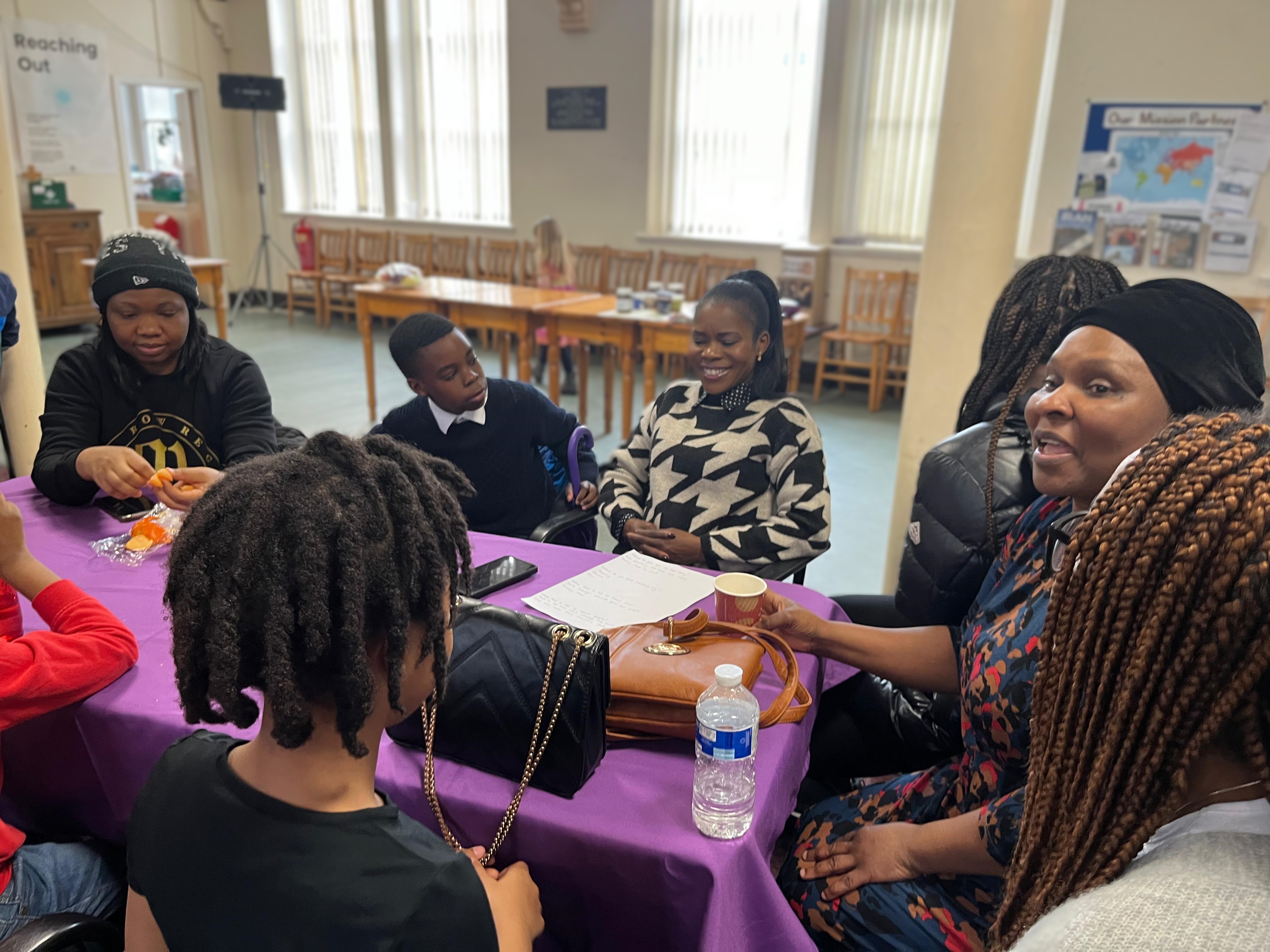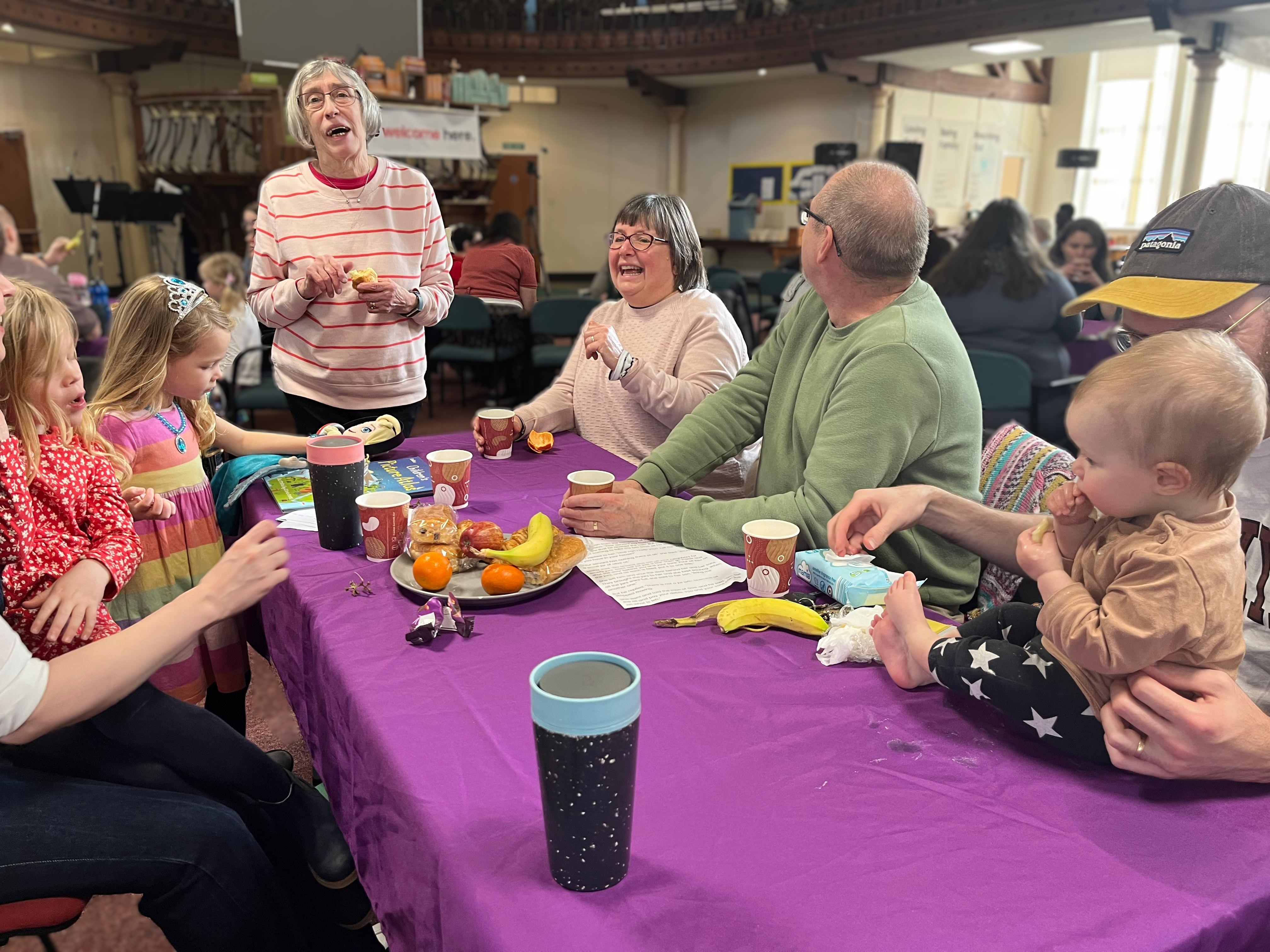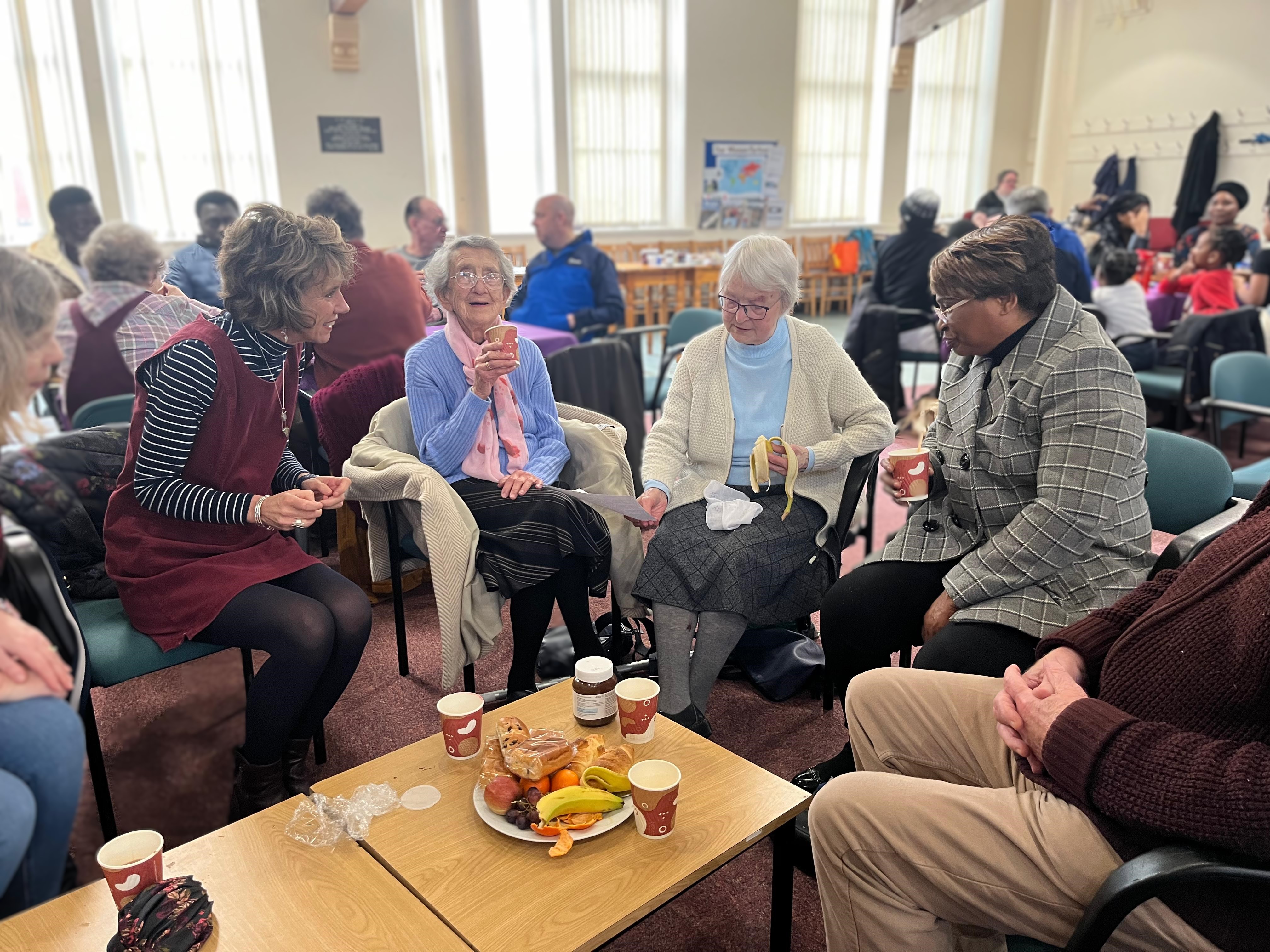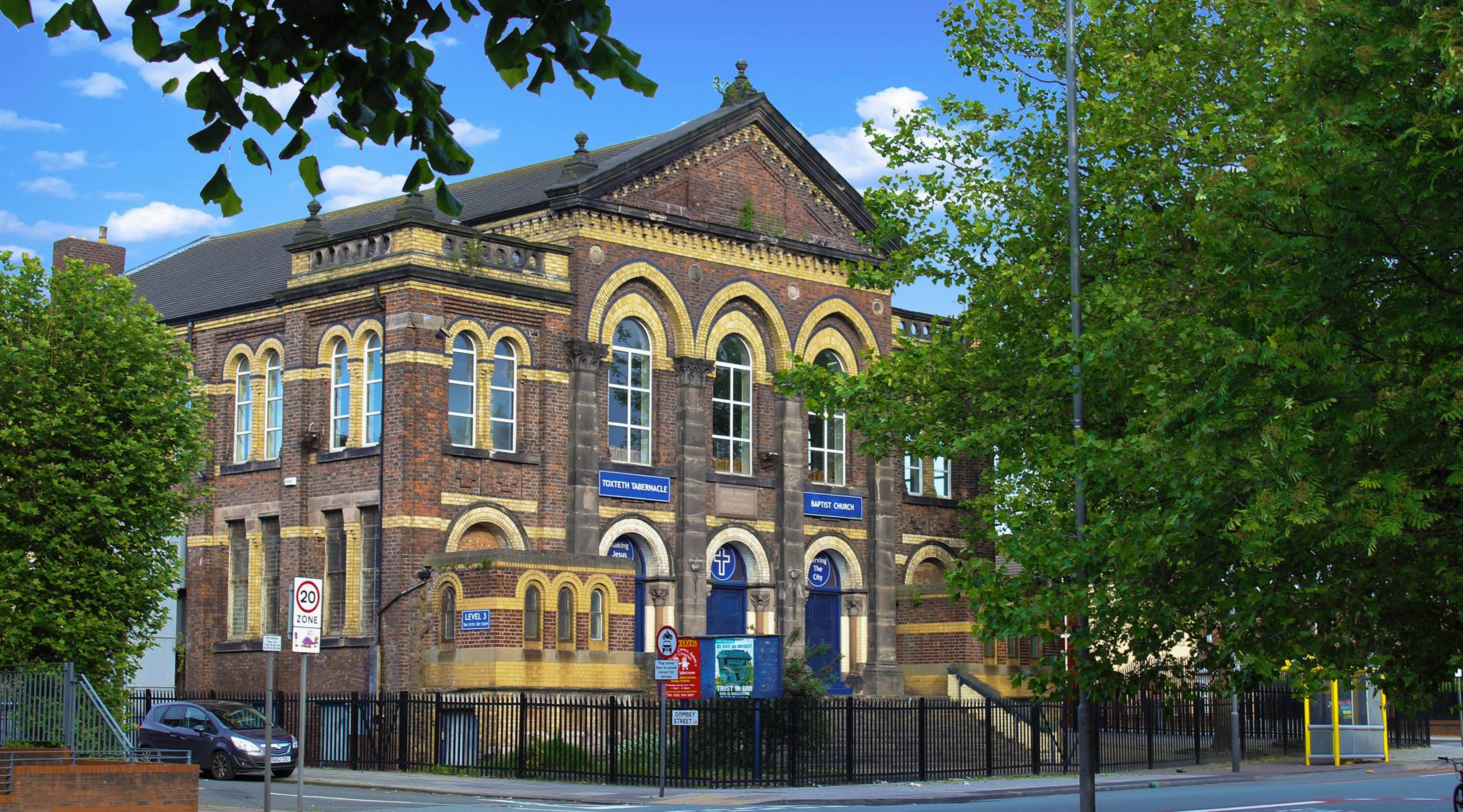
Disciple-making in Toxteth
Members of Toxteth Tabernacle Baptist Church in Liverpool are exploring what it means to be a disciple-making community. Interview with minister Jack Sykes
"Much of our focus has been around what being a disciple is,” says Jack.
“Big Life - the disciple-making movement - has this explanation: ‘a disciple is someone who hears, obeys and shares Jesus’s commands’. It’s taken from the Great Commission in Matthew 28.
"What does that look like in our context?”
Toxteth Tabernacle Baptist Church is based in a multicultural part of inner-city Liverpool, and has been following a framework created by Big Life since 2021. This model sees a small group focus on scripture, hearing from God through that, and then putting this into action with a view to creating new groups. These new groups would in turn start their own groups.
Now three years in, Jack says it’s still early days. Nevertheless the church is beginning to see the kind of multiplication envisaged while living as a disciple-making movement - and has discovered key biblical principles while doing so.
Background
Jack joined Toxteth Tabernacle in 2016, initially as its minister-in-training. He was hugely impacted by a reflection from one of his predecessors, Terry Jones, who led the church in the 1990s and early 2000s. Realising how cut-off the church was from the community, Terry instigated a huge amount of missional engagement, including a specialist school for excluded children, a daily café and more.
These were all amazing things, doing good in the community and reconnecting the church to the community, Terry wrote… but no disciples had been made.
“That for me was instrumental, really hard hitting,” says Jack, “It was really honest of him. We want to be serving our community, but we also want to be those who are making disciples. How do we go about creating a culture where that happens?”
This desire was in the hearts of the Toxteth congregation too. When Jack was ordained in 2019, he asked church members: “What do we need in church?”
“One of the things that came back highlighted a disconnect between what we did on Sundays and the rest of the week,” says Jack. “People were wanting to connect the gospel to just everyday life. They wanted simple ways to be sharing the gospel with their family or their friends or colleagues at work.” 
At this point Jack recalled his visit to Nepal and India a couple of years earlier. In Nepal he had visited BMS mission workers linked with the church, and BMS had encouraged him to travel to Kolkata, India and spend time with Ben Francis and the Big Life disciple-making movement Ben had founded.
“It’s really quite different from the kind of traditional church model we’d have,” says Jack.
“You begin with just a few people, looking at scripture, but they’re looking to multiply, so each group looks to start their own groups.
“Big Life started with one small group, but they have around 55,000 now.
“While this exponential growth is really exciting, it still seemed remote and distant from where we are.”
He was aware of the different cultural context in India, but nevertheless recognised the Big Life model was worth exploring. He had seen how it enables people to open scripture and share the gospel in an ordinary context, often in people’s homes.
He arranged for Big Life’s Europe director, Baptist minister Peter Dunn, to train the church. Peter’s session happened in 2021 due to Covid restrictions.
Obedience-based discipleship

“One of the key things the church learned straight away was the idea of obedience-based discipleship,” says Jack, “wanting to put into practice what we’re reading about - what God’s saying to us through scripture.”
Big Life encourages a small group meeting called ‘Three thirds’. Those present are encouraged to:
-
Look back: expressing your love for God, picking up on how folk have been able to put into practice learnings from the previous meeting.
-
Look up: a discovery Bible study where you look up to God and listen to him speak through his word as you reflect on four simple questions.
-
Look forward: ask God what we need to do as a result of reading his word and listening to him.
“The ‘look forward’ is particularly important”, explains Jack.
“Something we realised we were missing in our traditional ways of doing church is ‘How are we going to put this into practice? Is there something we need to obey? Something we need to share? Is there someone we can share this with?’
“Then when we meet again, we look back. We can ask: ‘How did you get on? If you haven’t done it, then okay, what would it take to put this into practice? Can you do it this week?’ It gives an accountability, which happens in relationship.
“People putting into practice what they’re reading is one principle that we’ve really seen benefit the church.”
One example of this being played out was seen last year. The church baptised several men and immediately started a group. It included Emmanuel, from Ghana. Previously Emmanuel understood being baptised to be the ‘pinnacle’ of his faith. But obedience-based discipleship places baptism at the start of the journey. 
“He’s looking to be obedient each week,” says Jack. “He talks about it like an ongoing adventure. What is Jesus asking of me now?”
Simplicity
The Big Life model is a simple way of having a Bible study, which can be easily replicated. Jack cites an example of how one church member who did the initial training with Peter Dunn began a couple of groups through work contacts. The three thirds model gave her a tool for conversation about faith.
A lady in one of the groups, unbeknown to the church, immediately set up her own groups, both in the hostel where she lived, and online with her family. People have come to faith in these groups, and have started their own.
“It means there is a form of ‘generations of groups’ beginning,” says Jack. “It’s happening outside the church walls. They’ll suddenly turn up to church one Sunday, and there’s an accountability back to the group. It’s exciting to see that kind of multiplication happening.”
Testimonies, prayer and fasting
Other elements are shaping the life of the church. Testimony time on a Sunday has been important. “People become more aware of God at work, because it’s so intentional – and sharing their experiences helps spur each other along as well,” Jack explains.
Prayer is now ‘central’ in the life of the church. “Prayer and fasting are really key components of disciple-making movements, particularly in the southern hemisphere where they’re really growing,” says Jack.
“I can’t say I was a regular faster before but now I fast regularly, seeking God. Prayer walking is a key way of how we put what we talk about in the groups into practice.
“There is a commitment to sharing faith”, Jack continues, “and because of this, regular practice in telling your own story. We’ve found that if they’re practising it, although it might seem forced, when they tell the story outside church it will roll off the tongue so much easier.”
Jack regularly encourages the congregation to answer the following:
-
So what was it like before Jesus?
-
How did you meet Jesus?
-
What’s it been like since meeting Jesus?
-
And then finish with a question or an invitation - does that make sense to you?
White working class – ‘the least fruit’
Jack stresses that it is still early days, and the church is seeing ‘the least fruit’ among the local white British population.
There have been some breakthroughs in relationships, some connections with those who have previously walked away from church, but no specific group emerge with non-believers in the way they have with others. That’s not to say it can’t happen (see the story of South Ossett Baptist Church in Yorkshire, in the Baptists Together magazine Summer 2023). But there are barriers – for instance, homes are more closed in white working class culture, so finding a meeting place is harder.
“We are still right at the beginning of this, so we’re just trying to explore what the barriers and blockages are. But it can be discouraging.”
Culture change
When the church began exploring the Big Life model, Jack felt any new groups would co-exist with a more traditional Sunday service. In reality the impact of the groups has led to a ‘culture change’, where testimony time, eating together, more multi-voiced services and an openness to learning from each other, regardless of age or experience in faith, are much more the norm.
“I think people now are equipped. There are tools they can pick up, not only for sharing their faith with those outside the church, but to be discipling them. Simple tools for opening scripture, and allowing God to move in that, to be encouraging people towards obedience to God, where it doesn’t need to be from a preacher at the front. It can be them.
“To see ordinary people in power like that is just really releasing.”

Images | Toxteth Tabernacle Baptist Church
Click here to
download a pdf version of this article